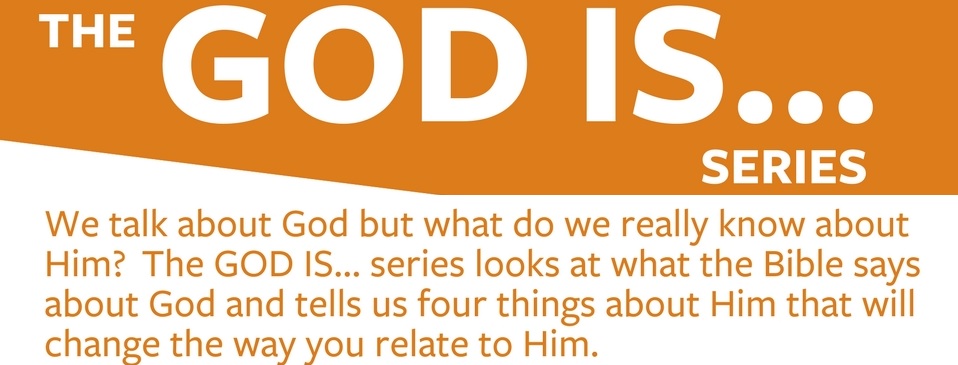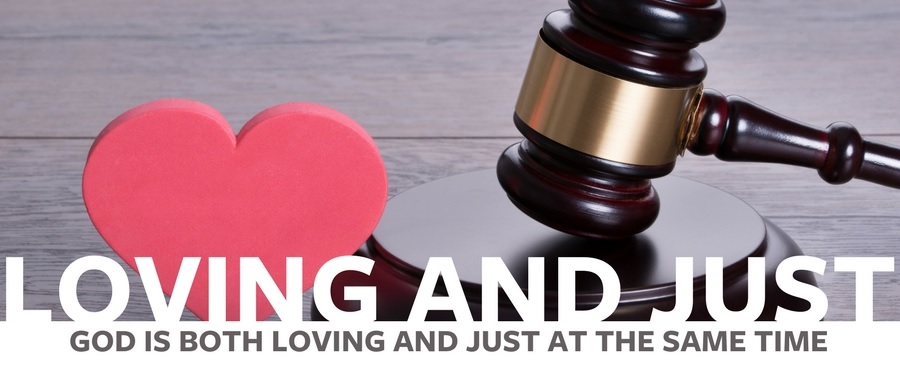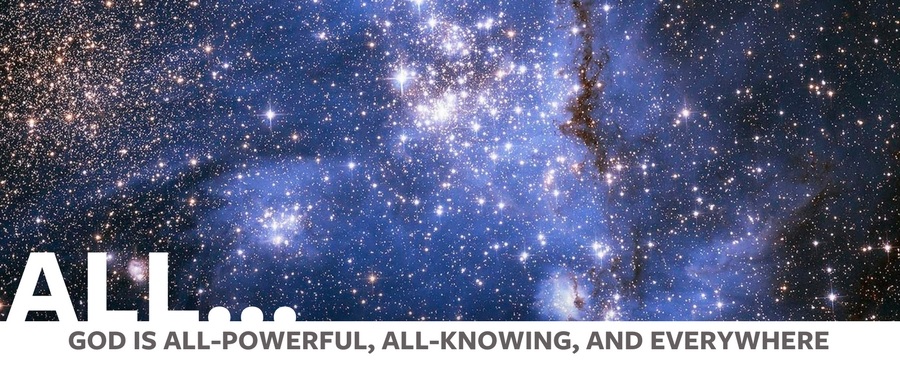God Is… Series


LAUNCH
Picture the scene: you’re facing a major crisis that you can’t solve yourself, and your two options for help are the President of the United States and your mother. The president has a lot of power, but he doesn’t know and care about you. Your mother knows and loves you like no one else, but she doesn’t have the power of the president. Who would you choose? What difference would it make if you didn’t have to choose — in other words, what if your mother was the president?
EXPLORE:
1. Luke 8:22-25. How would you describe Jesus from this passage?
2. What do you think was going on in the minds of the disciples during this boat trip?
3. Why do you think Jesus slept through the storm? Could He have stopped the storm before it even reached them?
4. What did Jesus say about the faith of the disciples? What was He trying to teach them?
APPLY:
5. Have you ever found yourself in a situation like the disciples, where you were in a bad way, desperate or fearful? Where was God in the middle of that situation?
6. How would you think and act differently if you really believed that God is all powerful, but also really cares about you personally?
7. God is so close to us that he knows us better than anyone else. Luke 12:7 says that God even knows exactly how many hairs you have on your head. Do you even know that? What is comforting about God knowing you so well? What is scary about it?
8. God is so big that he could instantly snap his fingers and solve your biggest problems. Why do you think he sometimes doesn’t do that?
9. Think of a challenge you are facing right now. Has this story of Jesus calming the storm changed your perspective about your problems? Can you share?

LAUNCH
Basketball star LeBron James broke a major rule when he met Prince William and Duchess Kate, English royalty. LeBron put his arm around Kate when they took a photo. Here are some of the rules for meeting royalty:
1) Stand when royalty enters the room.
2) Only speak when spoken to.
3) Address the Queen as “Your Majesty” and the Prince and Duchess as “Your Royal Highness.”
4) Never touch them, unless they offer a brief handshake.
5) Don’t chew gum.
6) Stop and bow 20 feet from the throne.
7) Stop eating when they stop eating.
8) Don’t turn your back on them.
What’s your reaction to this kind of royal treatment?
In America we are not used to having or being around royalty. We expect everyone to be treated equally. The closest we come to this is being around celebrities. In the passage we are going to read, Isaiah describes his encounter when he meets God seated on a throne.
EXPLORE
1. Have someone read Isaiah 6:1-9a. Have the students recap the story.
2. When Isaiah meets God in a vision, how does he see God?
3. What are the seraphs (angels) doing and saying? Why do you think they are covering themselves?
4. How does Isaiah respond? How do you think you would have responded if you saw and heard this?
5.How is Isaiah able to stay in God’s presence and not be destroyed? How has our guilt been taken away and our sin “atoned for (been paid for)” as believers, allowing us to be in God’s presence?
6. What does the Lord say to Isaiah in verse 8 and the first half of verse 9 and what is Isaiah’s response?
APPLY
7. When you compare yourself to this holy God, would you consider yourself to be a pretty good person or unclean, like Isaiah? Why?
8. If the only way for you to be with God is for you to be holy, how do you think you can become holy?
9. When the angels were in God’s presence, all they could do was worship him. How do you think recognizing God’s holiness would help you to worship him more genuinely?
10. As you read and see God in this passage as a holy and almighty king, what is your response to him? What do you sense God calling you to do?

LAUNCH
If you were to meet God face to face, what would you want to know about Him? What would you expect Him to be like?
EXPLORE
1. Read John 8:1-11. Have someone recap the passage in their own words.
2. How did the Pharisees view this woman?
3. How did Jesus respond to the Pharisees’ accusations?
4. How did Jesus respond to the woman?
5. Why did Jesus tell the woman to leave her life of sin?
6. How would you feel if you were the woman caught in adultery?
7. If you were the woman, how would you have responded to the way Jesus handled the situation?
APPLY
8. How have you experienced God’s love in your life? Justice?
9. Which of these qualities do you tend to have a hard time believing about God?
10. Why do you think it’s important for God to be both loving and just?
11. How does God display His love and justice through the death of Jesus?

LAUNCH
Who would you say knows you the best?
What are some things they don’t know about you?
As humans, we are limited in how much we can really know someone. Today we are going to talk about how God is different because he is…
- All Knowing
- All Present (everywhere)
- All Powerful
EXPLORE
1. Read Psalm 139:1-6. According to these verses, what does God know about you?
2. Is it a good thing or a bad thing to you that God knows everything? Why?
3. Read Psalm 139:7-12. According to these verses, where is God?
4. Read Psalm 139:13-18 and Jeremiah 32:17. What do these verses say about God’s power?
5. What do verses 17-18 say about how God feels about you?
6. What would your life be like if God wasn’t all-powerful, all-knowing, or everywhere?
APPLY
7. How can knowing these three things about God help you to be more bold in talking about God with others and loving others?
8. Sometimes we feel the need to be all-powerful (never run out of energy), all-knowing (always be “in-the-know”), and everywhere (never miss out on anything). How can this create problems for us and others? What difference does it make when we let God be God in these ways?
9. Write the answers to these questions on scraps of paper, fold them up, put them into the middle of the table.
What are some problems people have?
What are some problems in your life that you are personally worried about?
Have students pull them out one by one and answer, “How does what we learned today address that problem?”
Leave A Reply
 A Cru’s Study Material
A Cru’s Study Material


